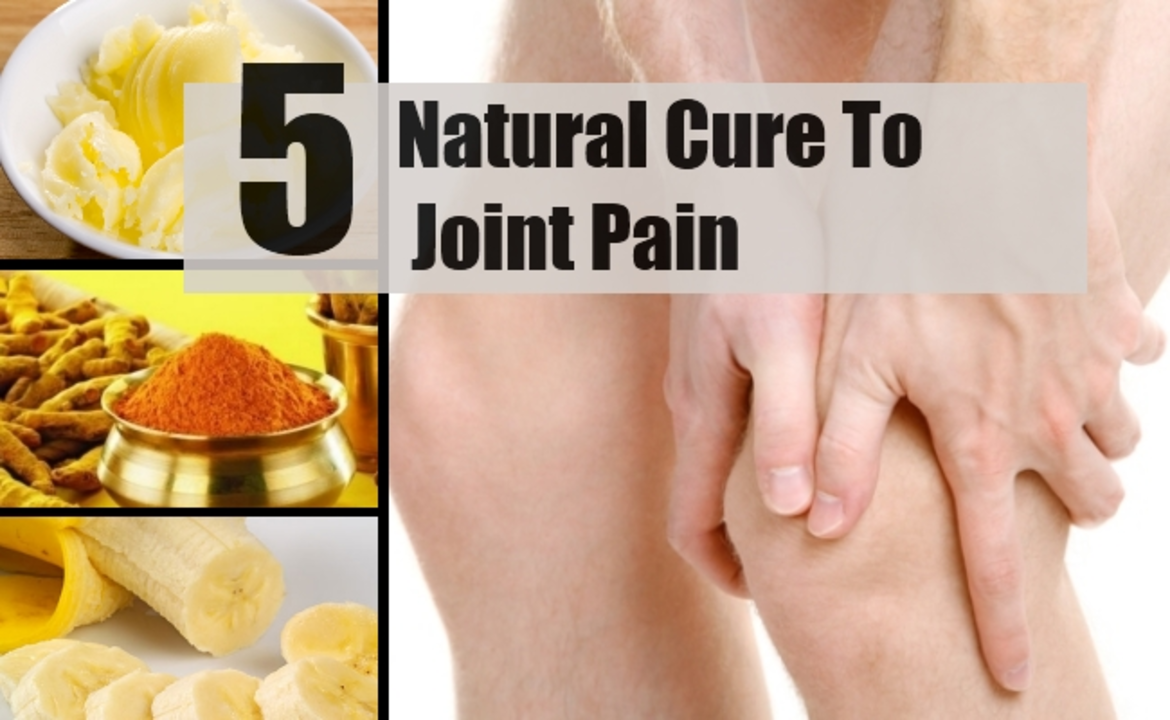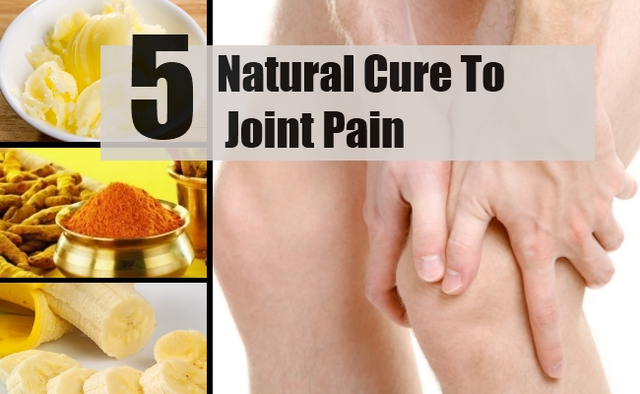Natural Remedies for Joint Pain: What Works and What Doesn't

Introduction: Understanding Joint Pain
As someone who has experienced joint pain, I understand how debilitating it can be. It can interfere with your daily life and even prevent you from enjoying the activities you love. In this article, I will discuss natural remedies for joint pain, focusing on what works and what doesn't. I will share my personal experiences and research to help you make an informed decision about how to manage your joint pain.
Easing Joint Pain with Diet
One of the first steps to alleviating joint pain is to pay attention to your diet. Certain foods can help reduce inflammation and improve joint health. Foods rich in omega-3 fatty acids, such as fish, nuts, and seeds, can help reduce inflammation. Additionally, incorporating more fruits and vegetables, especially those high in antioxidants like berries and leafy greens, can help protect your joints.
On the other hand, it's important to avoid foods that can cause inflammation, such as processed foods, refined sugars, and unhealthy fats. Reducing your intake of these foods can go a long way in improving your joint health and reducing pain. Remember, it's not about following a strict diet, but rather making conscious choices to nourish your body and support joint health.
Exercise: Building Strength and Flexibility
While it might seem counterintuitive, exercise is crucial for managing joint pain. Regular physical activity can help strengthen the muscles surrounding your joints, which can reduce pressure and pain. It's important to choose low-impact exercises, such as swimming, walking, or yoga, to avoid putting too much strain on your joints.
Flexibility exercises, like stretching or Pilates, can also help alleviate joint pain by improving your range of motion. Just remember to listen to your body and not push yourself too hard; the goal is to support your joints, not cause further damage.
Using Heat and Cold Therapy
Heat and cold therapy can be effective in managing joint pain. Applying heat to your joints can help relax your muscles and improve blood flow, which can help reduce pain and stiffness. You can use a heating pad, warm towel, or even take a warm bath to apply heat to your joints.
On the other hand, cold therapy can help reduce inflammation and numb pain. Applying an ice pack or a bag of frozen vegetables to your joints can provide temporary relief. Make sure to wrap the ice pack in a towel to prevent frostbite, and limit cold therapy sessions to 20 minutes at a time.
Topical Pain Relief: Balms, Creams, and Oils
There are numerous natural topical remedies available to help alleviate joint pain. Some popular options include creams containing capsaicin, which is derived from chili peppers, or menthol, which creates a cooling sensation. These ingredients can help temporarily reduce pain by blocking pain signals from the nerves.
Essential oils, such as lavender, eucalyptus, and peppermint, can also help relieve joint pain when combined with a carrier oil and massaged into the affected area. However, it's important to remember that these remedies provide temporary relief and should not be relied upon as a long-term solution for joint pain.
Herbal Supplements for Joint Health
Many people turn to herbal supplements to help manage joint pain. Some popular options include turmeric, ginger, and boswellia, which have anti-inflammatory properties. While some studies show promising results for these supplements, it's important to recognize that they may not work for everyone.
It's always a good idea to consult with a healthcare professional before starting any new supplement regimen, especially if you're already taking medications or have existing health conditions. They can help determine the right dosage and ensure there are no potential interactions with other medications.
Acupuncture: An Alternative Approach
Acupuncture is a traditional Chinese medicine practice that involves inserting thin needles into specific points on the body to help alleviate pain and improve overall health. Some studies have shown that acupuncture can help reduce joint pain, particularly in individuals with osteoarthritis.
While acupuncture can be a helpful complementary treatment, it's important to find a qualified practitioner and discuss your condition with them before starting treatment. Acupuncture may not be suitable for everyone, and it's essential to consider your individual needs and circumstances.
When to Seek Professional Help
While natural remedies can help manage joint pain, it's important to recognize when it's time to seek professional help. If your joint pain is severe, persistent, or accompanied by other symptoms, such as swelling or redness, it's crucial to consult with a healthcare professional to determine the underlying cause and develop an appropriate treatment plan.
Remember, joint pain can be a symptom of various conditions, and it's essential to address the root cause to effectively manage your pain. Don't hesitate to seek help and explore all available treatment options to improve your quality of life.



Nitin Chauhan
Stay active and keep moving, it really helps.
Angelo Truglio
When it comes to natural remedies for joint pain, the landscape is riddled with hype, half‑truths, and occasional genuine breakthroughs.
First, let’s acknowledge that the body’s inflammatory response is a double‑edged sword, protecting us while also inflicting discomfort when over‑activated.
Omega‑3 fatty acids, found in fish oil, walnuts, and flaxseeds, have consistently shown modest reductions in C‑reactive protein levels, which correlates with decreased joint swelling; however, the effect sizes are often modest and vary per individual!
Turmeric, thanks to its curcumin component, can indeed inhibit NF‑kB pathways, yet the bioavailability of plain powder is notoriously low unless paired with piperine or formulated into liposomal delivery systems.
Ginger mirrors many of turmeric’s anti‑inflammatory properties, but its clinical trials are limited, making broad claims premature.
Boswellia serrata extracts, while promising in some osteoarthritis studies, suffer from inconsistent dosing standards across supplements, leading to mixed results.
Topical capsaicin creams may produce a burning sensation that distracts pain fibers, yet they rarely address the underlying joint degeneration.
Heat therapy improves circulation and relaxes periarticular muscles, but it does not reverse cartilage loss; it merely masks symptoms temporarily.
Cold packs, on the other hand, curb acute inflammation by vasoconstriction, yet prolonged use can stiffen joints if over‑applied.
Exercise, especially low‑impact activities like swimming and yoga, remains the cornerstone of joint health, strengthening surrounding musculature and enhancing synovial fluid dynamics.
Acupuncture’s efficacy is still debated; some meta‑analyses suggest modest pain reduction, while others attribute benefits to placebo effects.
The psychological component of chronic pain cannot be ignored-mindfulness meditation can modulate pain perception pathways, offering a non‑pharmacologic adjunct.
Supplements such as glucosamine and chondroitin have produced mixed evidence; some patients swear by them, while rigorous trials show no significant advantage over placebo.
Importantly, dietary sugars and processed fats exacerbate systemic inflammation, so a cleaner diet supports any therapeutic regimen you adopt.
Finally, consulting a qualified healthcare professional before stacking multiple supplements is crucial to avoid adverse interactions, especially if you’re on anticoagulants.
In summary, a balanced approach-combining evidence‑based nutrition, appropriate exercise, and judicious use of targeted supplements-offers the best chance at sustainable joint comfort :)
Dawn Midnight
The article correctly notes that excessive processed sugar can increase inflammation, but it overlooks the role of advanced glycation end‑products in joint degradation.
frank hofman
Yo, I’m not buying that whole “just walk more” spiel-walking can actually wear down cartilage if you’re not doing the right warm‑ups 😜
Try some dynamic stretches first!
Dannii Willis
I appreciate the thorough overview; the emphasis on whole‑food sources of omega‑3 is especially valuable for readers seeking practical diet changes.
Robyn Du Plooy
From a nutrigenomics perspective, incorporating polyphenol‑rich berries can modulate the expression of COX‑2 enzymes, thereby attenuating the inflammatory cascade that contributes to arthritic pathology.
Boyd Mardis
Stop relying on quick fixes; sustainable joint health demands consistent lifestyle overhaul.
ayan majumdar
yeah i get you man just keep moving and don’t skip the stretching part
Johnpaul Chukwuebuka
Friends, start adding a handful of walnuts to your breakfast and notice the difference in joint stiffness over a few weeks.
Xavier Hernandez
Imagine your joints as hinges on a grand, ancient door-lubricate them with turmeric’s golden glow, and they’ll swing open with graceful ease.
Zach Yeager
Sure, you can try all that herbal stuff but most of it is just hype.
Angel Gallegos
Honestly, the whole “natural remedy” buzz feels like a marketing ploy aimed at the uninformed, lacking rigorous scientific backing.
ANTHONY COOK
Let’s be real, the supplement industry thrives on exploitation; they push overpriced capsules while ignoring lifestyle fundamentals 😒
Sarah Aderholdt
Evidence‑based interventions should trump anecdotal claims.
Phoebe Chico
Hey folks, love the balanced tone-keeping it real while offering viable options is the sweet spot.
Larry Douglas
While the article provides a solid foundation, it neglects to discuss the role of Vitamin D in modulating immune responses that affect joint inflammation, a noteworthy omission for comprehensive coverage.
Michael Stevens
Great discussion, everyone! Remember, consistency is key-keep up the good work and listen to your body.